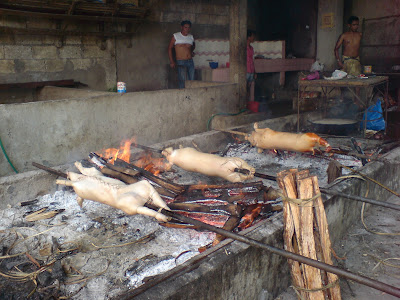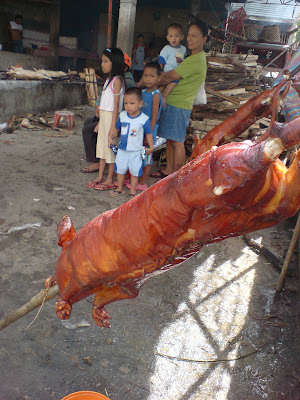Just like any other people of my age, I tend to look back and compare everything the younger generation is doing with that of my past experience. Many of you might say that past is past and it is now time to move on. Yes, it is true, indeed, but we can never move on if we won't learn from the lessons of the past. To be mean about it, from the old folks like me.
Christmas for example.
Way back when I was younger, Christmas celebrations started only in December and lasted on February 2nd. We did not hear Christmas songs until December. Nobody decorated his/her house on September or November but only on December. Christmas and December would always go together.
Christmas almost always started at the first Misa de gallo, on the 16th of December every year, signifying the start of the holiday period. Carolers big and small, young and old would sing Christmas carols in the dialect, in our case, Bisaya. We heard the English versions much later. The Bisaya carols have a deeper impact on us because we could relate ourselves with what we were singing or heard from other people sing because of the use of our language. Only later we could hear carolers shouting jimgom bills, jimgom bills jimgol all da whey. We traversed rice fields and creeks just to sing our carols even to the remotest of places, earning a few cents we divided after our parents would command us to go home.
On Christmas, the only light we consider as Christmas lights were the big parol hanging from the windows of the houses. They glittered extra bright at night because power supply in our time consisted only of gas and paper in a bottle we called lamp.
On the eve of Christmas, we would be sent early to bed with the expectation that Santa Claus would visit our house and fill in the socks we hung in our Christmas trees decorated with fake snow made from soap. This was also done by parents so no children would ran amok during the Misa aguinaldo which was said at midnight on the 24th.
Suman, bibingka, sikwate, biko, kapeng mais and so many other native kakanin would complete the celebration of Christmas. Spaghetti was nowhere in the menu.
Whenever parties were done, they were almost always a community undertaking. Some group would take charge of the food, others the drinks, and some for the sound system and physical arrangement. Parties were always done in a public place and people would flock to the site to choose whom to take as fodder for gossip in the morning after. Really a family affair!
The true spirit of Christmas before was always with family, first and for all. Even the community celebration was done because the community itself was part of the family.
Everything done now to celebrate Christmas is always about money. You would always hear from people that their Christmas is sad and bleak because they have no money.
And that is the saddest Christmas excuse ever.























































